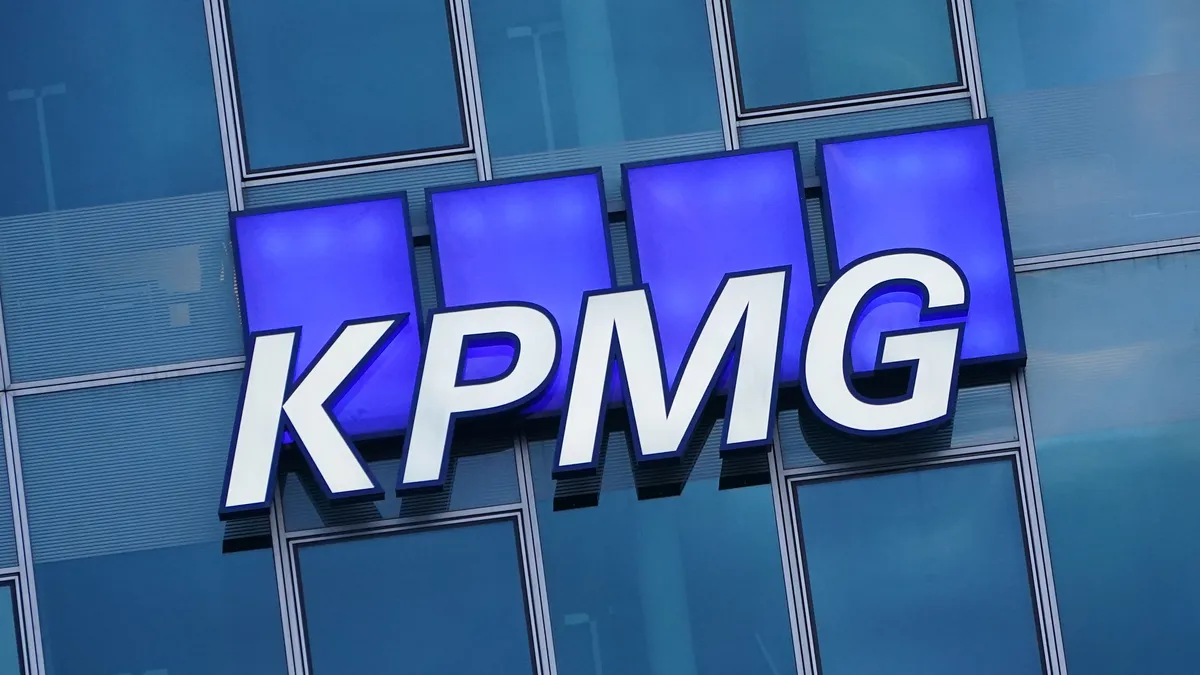Dive Brief:
- Big Four accounting and consulting firm KPMG on Wednesday threw its support behind a push to develop alternative pathways to CPA licensure that would replace 30 of the 150 college credit hours typically required with work experience or work-study programs of equal value, according to statements emailed by KPMG to CFO Dive. In addition to passing the CPA exam, currently most states’ CPA licensure requirements include 150 hours of college credit — effectively a bachelor’s degree plus 30 hours or effectively a fifth year of coursework — along with one year of related work experience.
- KPMG’s statement cited the time of and cost of the 150-hour rule as one of the top barriers that lead students to opt against becoming accounting majors, noting that they are already seeing the related shortage of accountants impact businesses and smaller firms.
- “We have a brewing crisis that will impact accounting firms and corporations. We need to absolutely address it in the very near term,” KPMG U.S. Chair and CEO Paul Knopp said in a statement on the accounting talent shortage. “The cost of becoming a CPA has become too high, including both the cost of the extra education and the opportunity cost of spending an extra year in school.”
Dive Insight:
KPMG’s full-throated support for alternative paths to CPA licensure comes roughly a month after the American Institute of CPAs shifted to officially move ahead with adding more paths and flexibility to licensure in order to tackle the accounting talent shortage.
The accounting association had previously raised objections to cutting the hourly credit requirement, citing concerns that the change could lead to a patchwork of varied state licensure rules that could prevent CPAs from being able to work in any state, CFO Dive previously reported. Accounting professionals in South Carolina, Minnesota, California, Oregon, Arkansas, Washington state, Alaska, Texas, Virginia, Maryland, and Florida are all exploring new pathways to licensure, KPMG said.
KPMG’s support stopped short of specifically supporting the AICPA plan, instead noting that conversations “across the country are a step in the right direction in that they recognize the consensus for change.” But, it said, the change needs to pave the way to a “simpler approach” to licensure which also preserves what the industry often calls mobility, or the ability of CPAs to work across states.
“We believe reforms can increase access to becoming a CPA and improve the quality of the profession at the same time, because of the nature of technological change. More direct, hands-on experience with coaching by practitioners enables a far more prepared candidate for the CPA,” the spokesperson’s statement said.
KPMG’s Knopp in his statement emphasized that technology was fundamentally changing the nature of the profession and that hands-on experience with cutting-edge technology and data was valuable. Knopp also sounded the alarm about the accounting talent shortage in a Wednesday afternoon post on his LinkedIn page.
“Accounting is the language of business. Today, we can recruit the talent we need, but the shortage is already impacting our profession, as well as businesses,” Knopp wrote. KPMG in its email said that it was the first Big Four firm to publicly support the alternative licensure paths. PwC, Deloitte and Ernst & Young could not immediately be reached for comment.












